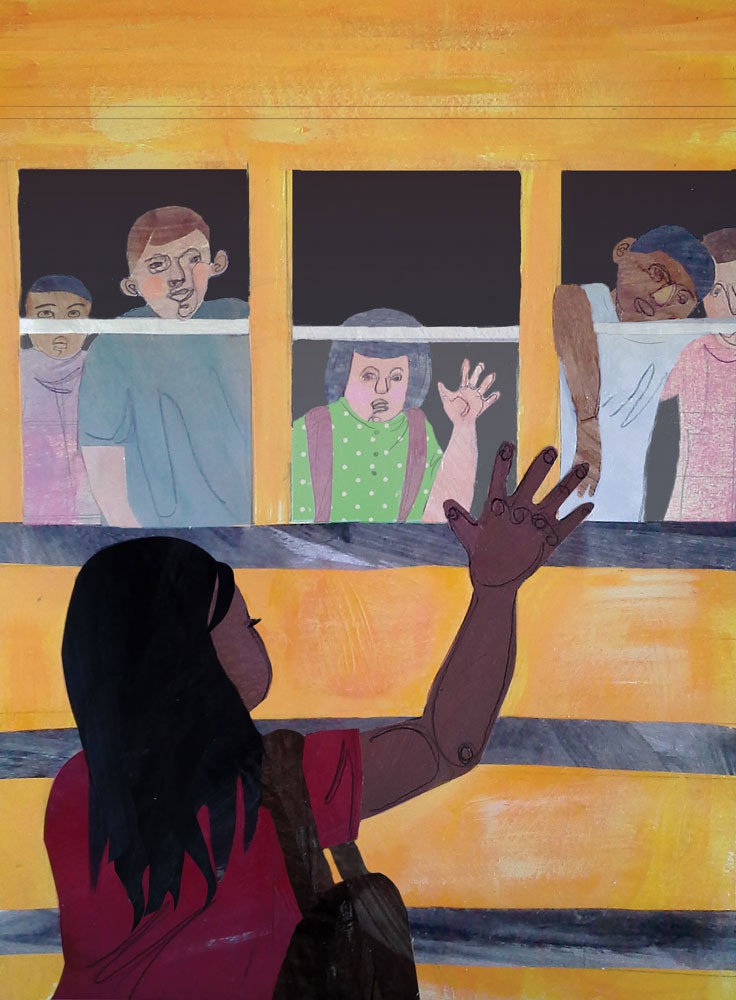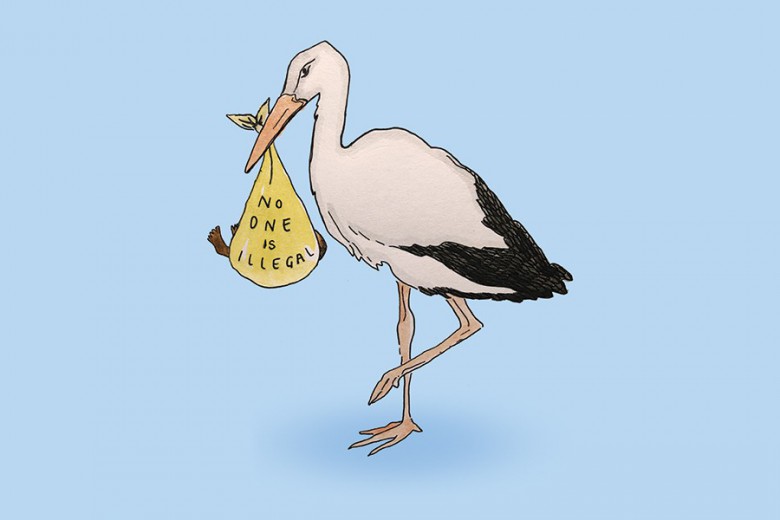
My two-year-old daughter started nursery school this year. As we were gearing up for this transition, this big milestone, other parents asked me, “Are you ready?” My response, always: “Fuck yes. Get this toddler out of my house.”
This is not a popular response.
At the orientation, the teacher mentioned that one parent wasn’t coming but that was OK because the couple had six kids and were well-oriented with the school already. Six kids! We all gave appropriate exclamations, amazed head shakes, murmurs of awe. A mother of two said, “Sometimes just two seem like too many!” Soft chuckles all around. I added, “Sometimes one is too many!”
Uncomfortable silence.
In these two moments, I found myself beyond acceptable limits of motherly griping, beyond the bounds of good motherhood. And even in writing these two anecdotes, I had to resist adding phrases that would temper my transgressions: “But of course I love my daughter!” or “But of course it’s all worth it!” These phrases are the echoes of societal disciplinary tactics that constrain and shape motherly feelings and expression, that dictate what (good) mothers are allowed to say and feel and do. I hear them echoing across the small and big screens, in (the lack of) maternity leave in the workplace here in the U.S., in the appalling cost of child care, in marriage and divorce law, in punitive social welfare policies. They are also the literal echoes out of other people’s mouths, even other mothers, people finishing my sentences for me by adding those corrective phrases after every complaint: “But it’s all worth it, right?”
Hidden in that sentence, behind its celebration of children and child-raising, is the systematic devaluation of women, of mothers, of mothering. Because in always pairing the hardships with the joys, the complaints with the gratitude, as if those cancel each other out, we erase the labour, the struggles, and most of all, the needs of mothers. We define motherhood through endless sacrifice and martyrdom, not allowing mothers to demand things for themselves, as mothers, as women, as whole people. We don’t allow mothers to need.
Motherhood can be joyful. It’s also fucking hard. And we should be allowed to say so, without equivocating, without apologizing. Most of all, we should be allowed to need – and get – support.
These disciplinary tactics, these definitions of good (white, middle-class, straight, monogamous, nuclear, self-sacrificial) motherhood hit me in the first year of my daughter’s life, contributing significantly to my experiences of post-partum depression. Good mothers love their children above all else. Good mothers sacrifice everything. Good mothers stay at home. Good mothers feel grateful. Good mothers love mothering. Good mothers find it all worth it. Good mothers don’t cry all the time, don’t feel completely overwhelmed, don’t want to run away, don’t resent their children, don’t hate their lives, don’t want to kill themselves.
And the crazy thing is I’ve gotten a fairly blunted form of this discipline, softened by resources and significant access to ways of performing good motherhood. I’m married to a man, femme, straight-passing, middle-class, seemingly able-bodied, “respectable” in the ways I speak and dress, able to make fairly flexible choices around child care and being at home/working outside the home. My struggles to articulate how difficult motherhood is for me are just the tip of the iceberg of disciplined, policed motherhood. Follow the invisible lines, and we end up at the structural violence embedded in standards of motherhood and womanhood that systematically undermine women at their most vulnerable.
What this disciplining, this undermining, looks like for many other women – especially poor women of colour, single mothers, disabled mothers, women with mental illness, and mothers in non-nuclear family formations or in queer families – is structural and legal violence that withholds support, that pressures women to marry, that humiliates and punishes “incompetent” mothers, that takes children away. Women of colour in the U.S. have particularly had to fear the family welfare state with its appalling history of intervention to “save” children from their own mothers, a long-standing form of cultural and actual genocide. Acknowledging the very real issues of domestic violence and abuse, we can still critique the state for the ways it readily reads mothers of colour as bad mothers and approaches compromised mothering as an individual pathology to be remedied by punishment, the extraction of children, and placing those children in the often abusive system of state care.
Compromised mothering is rarely recognized as a condition of “living under siege” within violent structures that consistently work to undermine that very mothering. In the private sphere, women of colour, especially immigrant women (sometimes “imported” directly from other countries), take on the labour of displaced mothering as low- or no-wage nannies to care for wealthier women’s children, in order to make enough money to support their own children whom they now cannot mother. This is the systematic undermining of motherhood, often in the name of children or “the family” or even women themselves.
Who deserves to be a mother and to have support in their mothering – and who gets to dictate these criteria? What happens to mothers who cannot perform good motherhood? What happens to how they feel about themselves, their mental well-being, their relationships with their children, their relationships with any co-parents? What happens to their support systems? In turn, what happens to the viability and safety of their families?
If we really love children as we say, if we really think mothering future generations is one of the most important contributions to society, one of its critical social labours, then what would a societal support system look like that truly embraces mothers, mothering, and child-raising? It would acknowledge the real, back-breaking, heart-breaking, soul-crushing work that is parenting and not erase those things when we celebrate the ways parenting is life-giving, breathtaking, meaningful, and transformative. It would expand parenting into a social concern, a social good, because one woman cannot and should not do it all. In this way, child-raising becomes a community responsibility – and mothers, parents, become the leaders of community child-raising. It would create structures that enable mothering in all its forms, and, most of all, enable mothers to be full people. Being a full person is foundational to being a good mother; we need to see and nurture the full personhoods of mothers. We need to love mothers as much as we love children.
This is what it really means to support mothers and children, to be pro-life in an expansive form. A step further: this is the beginnings of what it means to support queer family structures, to think about family and child-raising and parenting – indeed, community-building – outside the privatized nuclear family, to create community that, in radically supporting women and children, defines its members’ commitments and ties to each other in new ways.
I love my daughter. So fiercely it borders on pain. It is a fire that consumes me, that I want to consume the world with, that generates possibility and life, revelation and revolution.
I love myself just as fiercely. Now I need the world to love both of us that way.
First published at Black Girl Dangerous.



